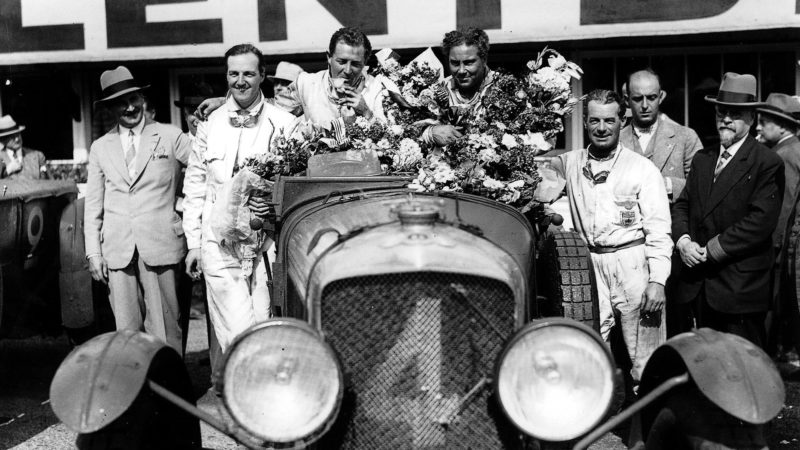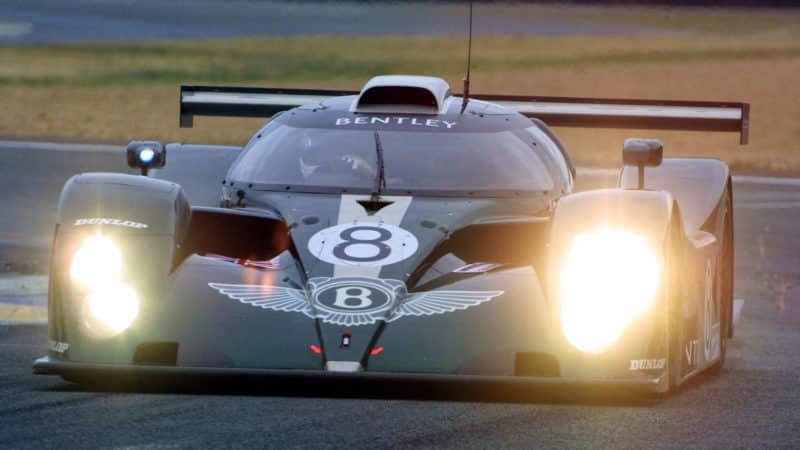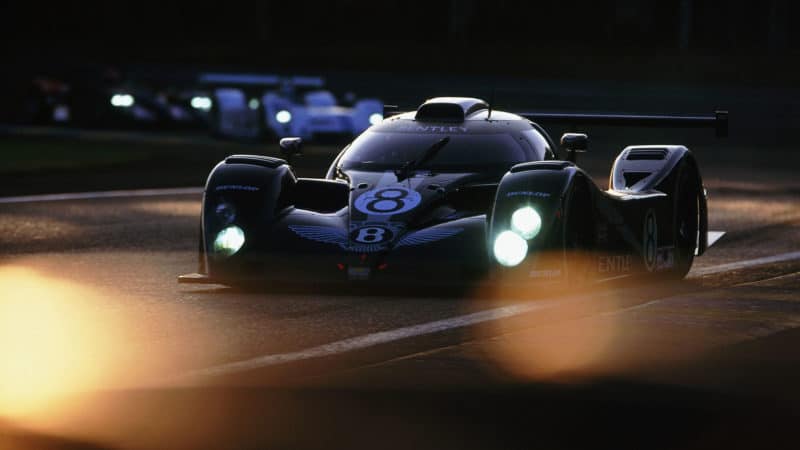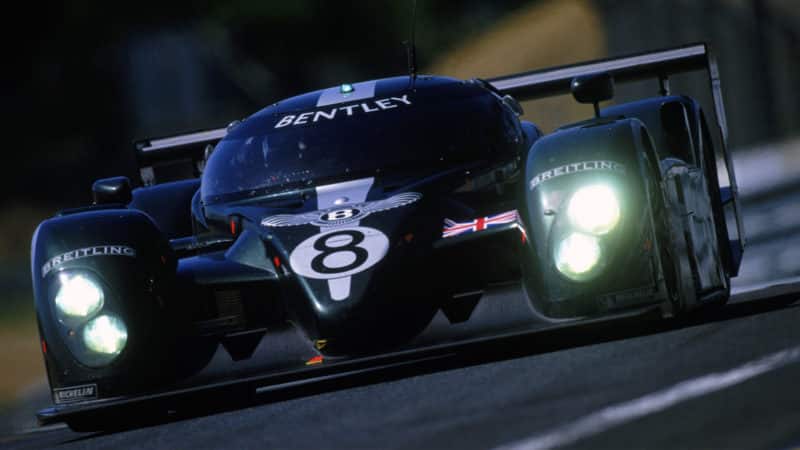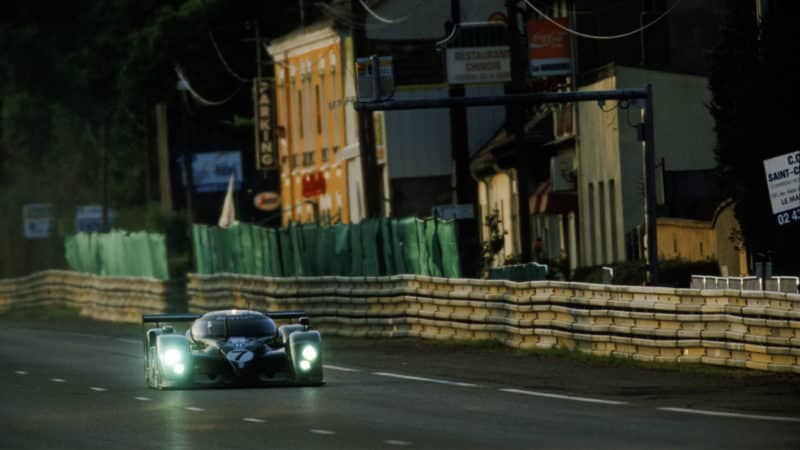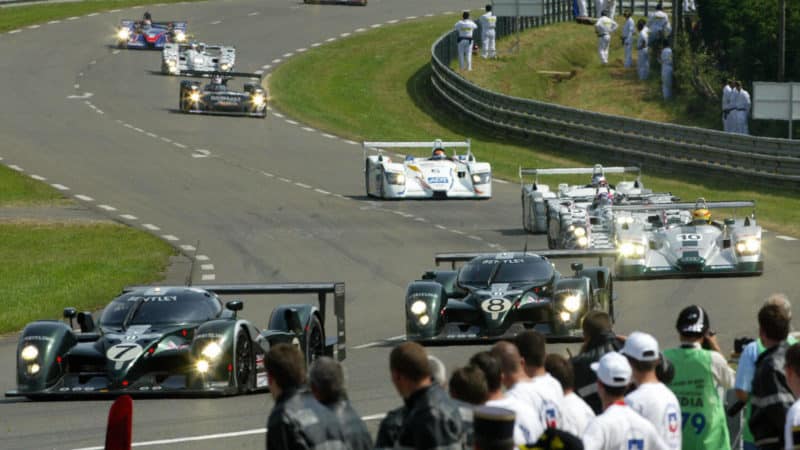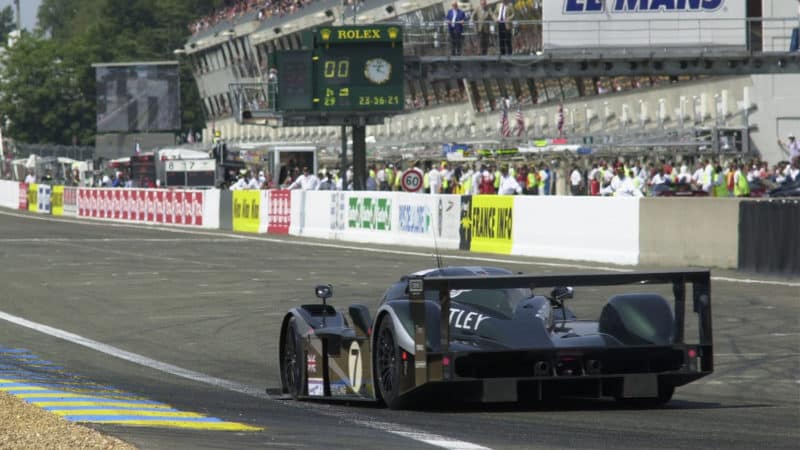“I negotiated an engine deal with [then-Audi CEO] Dr Paefgen of Audi, and we shook on it. But he said ‘you’ll never get it past marketing to get an Audi engine into a Bentley race car.’”
Gush had Paefgen’s theoretical support guaranteed if he managed to make the unthinkable happen at the crunch meeting.
“I had to convince VW AG that it was a good thing to do. So that was quite a career moment, presenting in front of Dr Piëch – the man behind the Porsche 917!” he remembers laughing.
“I had a model of the Bentley car in the room, and we explained what we wanted to do. He didn’t say yes, he didn’t say no, he just asked for more detail – from there the project evolved.”
Although Gush didn’t have the full green light, he knew he had to invoke the spirit of Bentley’s bygone age: press on regardless, but be pragmatic to the hilt.

2001 car impressed in testing – but wasn’t quite quick enough to challenge the Audis
Getty Images
“There was a lot of pressure to wait,” he says. “But I felt if you waited too long, the moment would pass and we wouldn’t get it done.
“The key to the whole thing was actually budgeting and so I worked very closely with [sports car team boss] Richard Lloyd, and then John Wickham, in putting a budget together that was ‘zero based.’ Ulrich Baretzky [Audi’s engine guru] really took the project to heart and helped us a lot. Getting the right people on board was critical.
“So, we started at zero and said, ‘Well, what do we need to go and compete, to make our car really competitive?
“That budget was just a fraction of what the VW group was spending on motor sport which led to a bit of an incredulous attitude: ‘You’ll never do it for that!’ Which was a big motivation for me to get it done.
“Adrian Hallmark’s been on record saying that our expenditure was less than the hospitality of Audi, but that’s very difficult to verify! I was just proud of the fact we got it all done, we never wanted for anything.”
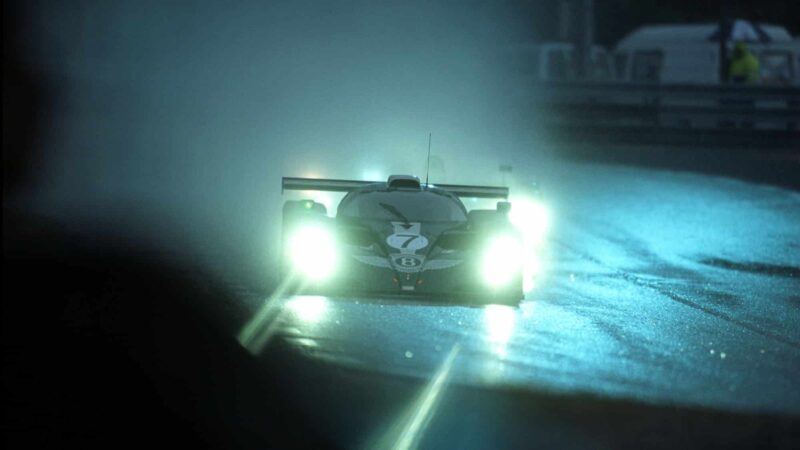
Monsoon nearly derailed first Le Mans entry
DPPI
Bentley’s 2001 Le Mans return
Bentley’s first effort for its Le Mans return in 2001 would be the EXP Speed 8, and Gush emphasises that autonomy was the name of the game for a racing story which some suggest is just an Audi R8 prototype with a roof on it.
“The operation that we took over had an incredible depth of manufacturing, which was really good – there was more British content in the Bentley than there was German content in the Audi: the R8 chassis was designed by Dallara, the gearbox was from Ricardo,” he asserts.

